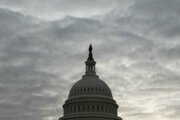Dr. Michael Osterholm
Title: Director, Center for Infectious Disease Research and Policy at the University of Minnesota
Location: Minneapolis
With the Summer Olympics in Tokyo rapidly approaching, serious health concerns loom for international athletes and their hosts alike. The scaled-down games will occur even as Japan battles another coronavirus wave and recently extended its state of emergency to June 20.
As of June 9, less than 12% of Japan’s population has received at least one dose of a COVID-19 vaccine. Osterholm — who served on President Joe Biden’s transition COVID-19 advisory board — calls for stronger measures to protect all players and prevent virus transmission. In a May 25 perspective piece published in the New England Journal of Medicine, he and other top infectious disease experts called on Olympic planners to incorporate much stronger safety measures.
As told to Lisa Esposito, as part of U.S. News & World Report’s “One Pandemic Question” series. Responses have been edited for length and clarity.
Q: Should the Olympics proceed as planned?
First of all, the Summer Olympics should not proceed as planned. However, they may very well be able to proceed — if organizers continue to improve upon the plans they have for assuring athlete and team-member safety, as well as that of the support staff and community as a whole.
As we said in our New England Journal of Medicine piece there’s still much to be done to substantially improve the safety of the Olympics.
The International Olympic Committee is going to issue a new playbook, as they call it — plans for assuring participant safety — in the next several days. We’ll see how much of that plan has been updated to reflect what we believe will have the greatest impact in protecting participants.
A lot of the original planning was based on the mistaken idea that COVID-19 is primarily a respiratory-droplet illness. With droplets, if I sneeze or cough, those droplets tend to fall out within 3 to 6 feet of me. That premise has to change. People now realize that COVID-19 is actually an airborne illness, transmitted in large part by aerosols.
For the Olympics, there has to be recognition that this is an airborne illness with planning done accordingly. Having large numbers of people in a smaller room, even if they’re 3 to 6 feet apart, doesn’t protect them if there’s someone else who’s infected and breathing.
Greatly increasing the number of people who are vaccinated will clearly have a substantial impact. Planners need to do everything they can to get as many people involved in the Olympics vaccinated, including volunteers and the medical community.
[See: Fear, Courage, Grit: Meet More Than 50 ‘Hospital Heroes’ in Pictures.]
Finally, we have to do whatever we can to assess and manage risk. How do people interact with each other outdoors, say for archery, sailing or equestrian? That’s very different than an indoor wrestling event. So plans have to be laid out and put into place that differentiate the levels of risk.
How do you respond? What do you do for ventilation and for respiratory transmission? A face-cloth covering has only limited effectiveness in reducing aerosol-related transmission. So are you going to use an N95 respirator? You need to address those kinds of issues.
There aren’t going to be spectators for these Olympics. But there will be media, whose presence could be substantial. There surely will be a number of volunteers.
[See: Personal Protective Equipment (PPE): Definition and Examples.]
The key message for organizers is: They have to bubble Olympic participants from the broader community. We don’t want the community transmitting the virus to participants. And we don’t want participants to go back home afterward and transmit the virus to anyone there.
Lessons we’ve learned here in the United States in particular on how to conduct professional sports will be critical. I was part of the group that worked to support the NFL throughout their season — which they were able to successfully conclude. We learned a lot there about testing, contact tracing and how to bubble at-risk populations from those who might be infected. The Olympics are going to require a lot of that same planning, which to date has really just begun.
The international scope of the games could raise COVID-19 transmission risk enormously — but it doesn’t have to. That’s if you take steps to mitigate risk — basically reducing the likelihood that people will expose each other to the virus if they’re infected. Testing and contact tracing are going to be a very important part of that. And if someone is found positive, to quickly act to stop additional spread.
Co-mingling of athletes in the Olympic Village must change. Absolutely. An issue now being acted on is that all participants have to leave the country within 48 hours of the end of their events. So the entire team will not be there together. They won’t come in or leave together. That’s going to be very important in minimizing opportunities for infection.
The opening and closing ceremonies are outdoor events, which of course is fortunate. But organizers will have to take steps to prevent transmission by limiting contact to ensure people aren’t swapping air with others who might be infected.
A new ‘Olympic variant’ is not really a concern at this point. Our job is to do everything we can to make sure the Olympic participants — be they athletes or support teams — don’t bring any new viruses with them to Japan. And in the context of the current number of cases in Japan, that those viruses don’t spill over to participants.
The worst-case scenario would potentially be a super-mixing in terms of different variants. And this virus is going to make its way around the world, regardless. But it’s events like this that can accelerate it really quickly.
With that being the case, if you can bubble people from contact, then you can hold a relatively safe Olympics. Now we’ll see what the plans look like in the next several weeks to get a sense of what they’ve done to be able to reduce that spread.
More from U.S. News
Ways to Boost Your Immune System
What to Say to Friends or Family Members Who Hesitate to Wear a Mask
Countries Without Reported COVID-19 Cases
Warning: Summer Olympics Must Ramp Up COVID-19 Prevention originally appeared on usnews.com







